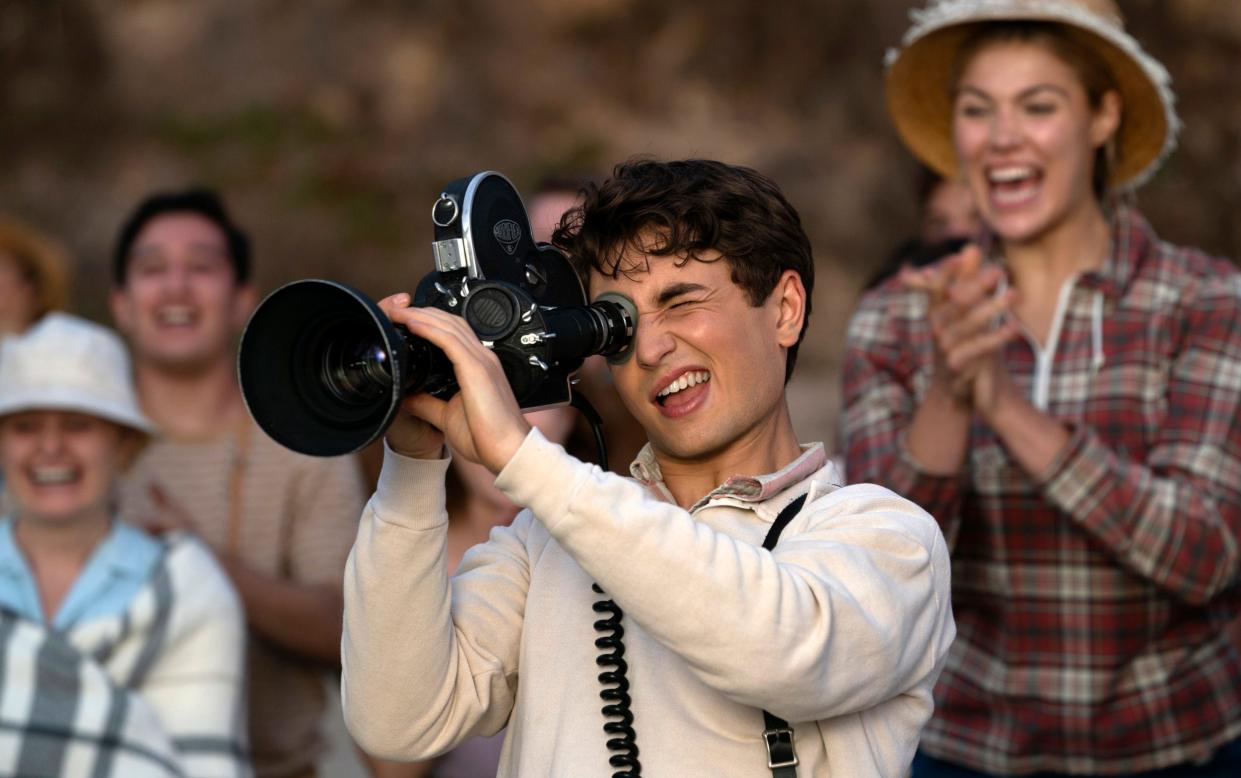A train crash, David Lynch and a glimpse into Steven Spielberg’s broken home

Sharks, wars, dinosaurs, swashbuckling archaeologists, extra-terrestrials cuddly and otherwise. Steven Spielberg’s films are nothing if not wide-ranging, though listing their subjects isn’t quite the same thing as pinning down what they are actually about. In the 52 years since his debut feature Duel, broken homes have emerged as the great constant in his work. And there’s a constant image too: the lingering shot of an awe-struck face, upturned and saucer-eyed in the light.
The Fabelmans serves as an origin story for both. After his sensational but depressingly undervalued West Side Story adaptation, Spielberg has gone back to his roots with this breath-catchingly tender semi-fictionalised memoir: a twofold dramatisation and interrogation of his own artistic beginnings. In contention for seven Oscars and one Bafta – a bit stingy, there, British Academy – it traces the early life of one Sammy Fabelman, the eldest kid in a midcentury suburban Jewish American household. Played by Mateo Zoryon Francis DeFord as a child and then by the wildly charming Gabriel LaBelle as a teen, Sammy is an aspiring director, who learns to use his camera to bring sense and shape to a complex, tumultuous and sometimes unwelcoming world.
The lad’s debut short is a Hornby-scale recreation of a sequence that half-transfixes, half-traumatises him on his first cinema trip: the train crash in Cecil B DeMille’s The Greatest Show on Earth. To soothe his nerves in the queue, Sammy’s electrical engineer father Burt (Paul Dano) describes the technology that makes the image come alive, while his concert pianist mother Mitzi (Michelle Williams) gushes that “movies are dreams that you never forget.”
At this point, you suspect Spielberg and his co-writer Tony Kushner might be cooking up an American take on Cinema Paradiso, in which the magic of the movies will be strenuously insisted upon for two and a half hours. In fact, their script is far more intrigued by the tension between Sammy’s own inner dreamer and technician, the way it shapes how he works with a camera, and how in turn the camera works on him.
For one thing, it sees things he does not. An affair between Mitzi and a family friend, the constantly present ‘uncle’ Bennie (Seth Rogen), is noticed by Sammy only through moments of intimacy glimpsed in the background of his footage of a family camping trip. Later on, he discovers how these clear-sighted flashes can be seized upon, even weaponised. In a record of a high school class trip to the beach, he portrays one of his anti-Semitic bullies (Oakes Fegley) as a weedy loner, and another (Sam Rechner) as a gilded hunk. Each of these very different deceptions leaves its subject seething with fury and guilt.
Exactly why Sammy elevates one of his tormentors is one of the juiciest moral posers in recent Hollywood cinema (admittedly not a crowded field). Perhaps it’s related to the advice given to the younger Sammy by his great uncle Boris (Judd Hirsch) – a first-generation immigrant and circus veteran who tells him art can be an outsider’s salvation, even if the making of it drives you further into the margins.
Or perhaps it harks back to Mitzi’s still earlier observation, after watching Sammy shoot and reshoot his version of the train crash that terrified him: “He’s trying to get some kind of control over it.” Crucially, it’s his own crash footage that serves as the light source in what must now be the definitive awe shot in the Spielberg canon: Sammy kneeling in a darkened room and looking in amazement at a projection of his own first film dancing across his cupped hands.
The thing about Spielberg these days is he makes this stuff look easy. Even as his style has (generally) grown more mature since 2012’s Lincoln, it’s become increasingly hard to detect any effort behind it. Even his West Side Story just seemed to spill out of the screen – and The Fabelmans runs in a similar if more delicate way, with the subtle grace of its camerawork (by Janusz Kaminski), its gauzy string, piano and celesta-led score (John Williams, of course) and its finely balanced performances.
Dano and Williams’s ability to perch right on the line between adorable and infuriating – as parents have been known to – is especially well-judged. There’s only self-conscious flourish here, though it’s a stunner: a final-scene cameo from Mulholland Drive director David Lynch as a certain classic Hollywood grandee who gives Sammy a brief but memorable masterclass. Precisely who Lynch plays is too much fun to spoil, but the sequence is madly inspired. It also happens to be a true story – though The Fabelmans’ fictional parts feel just as honest and revealing; seamless syntheses of life and art. That is Spielberg’s extraordinary gift: at 76, he’s still the boy cradling an entire medium in his hands.
12A cert, 151 mins. In cinemas from Friday

 Yahoo News
Yahoo News 
